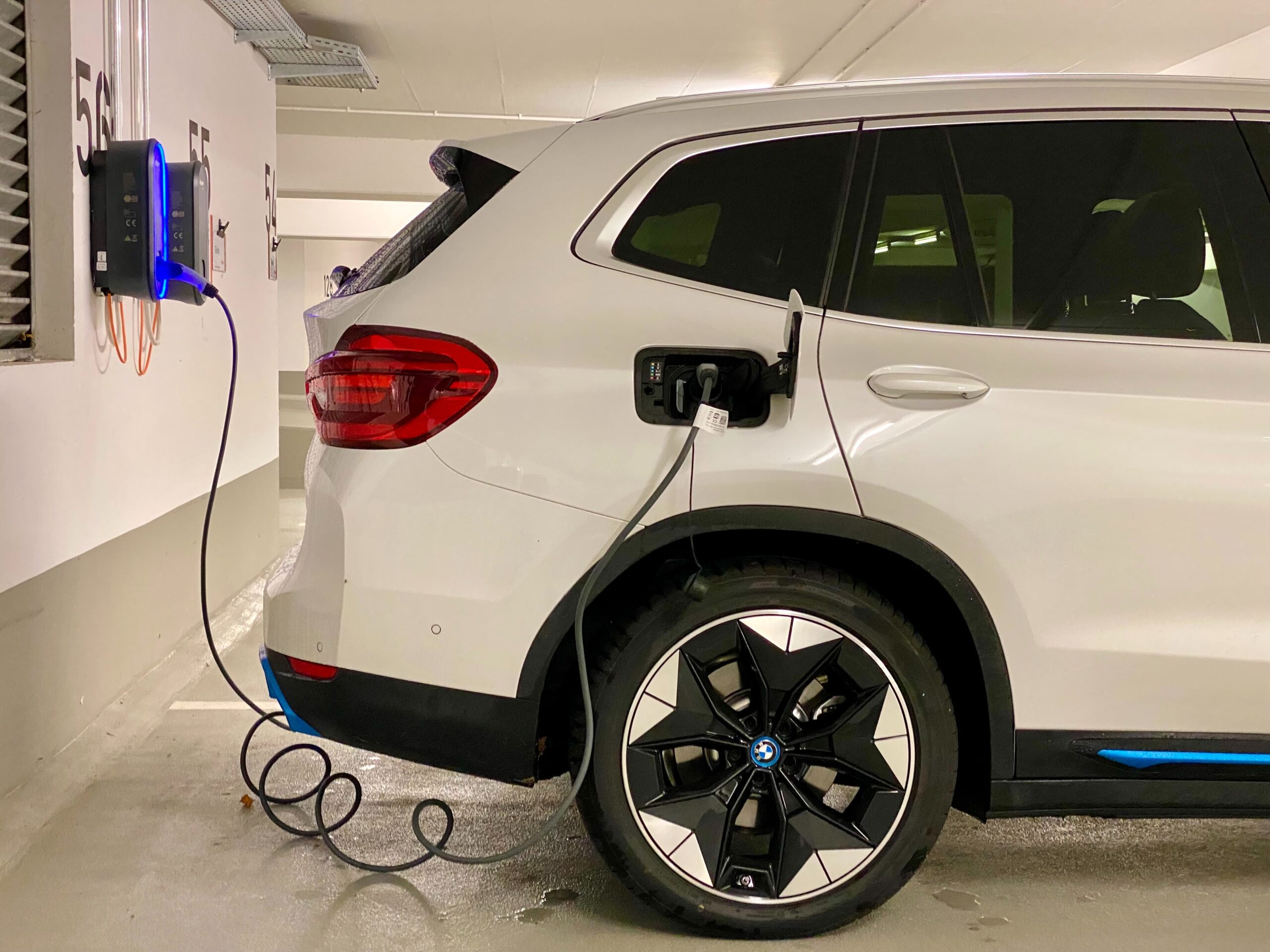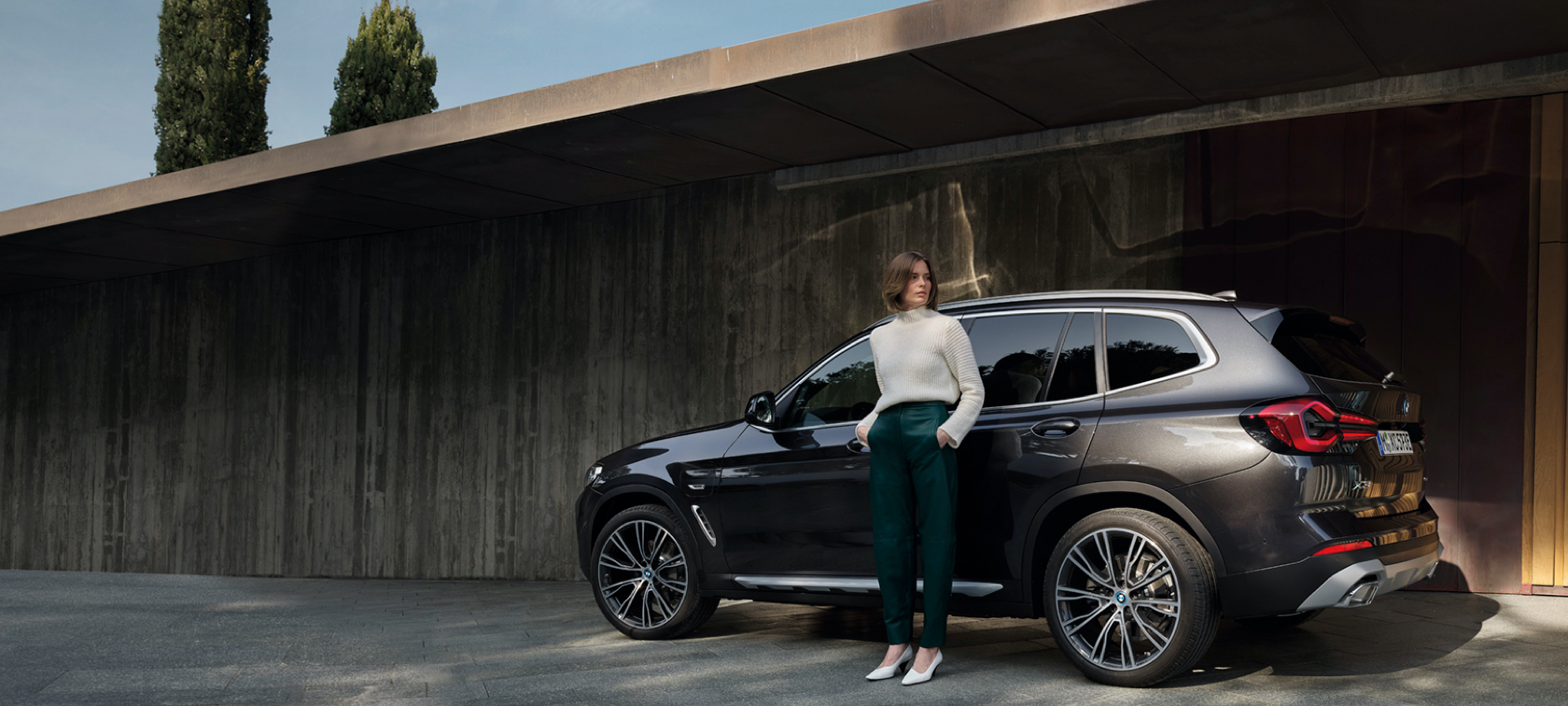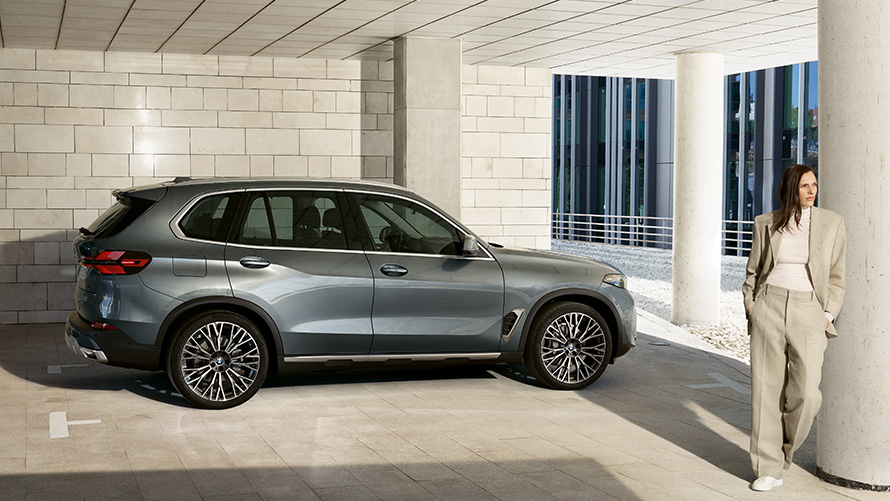Unleashing Power and Efficiency: Exploring the BMW X3 and X5 Hybrid
The BMW X3 and X5 M Hybrid models represent the perfect synergy between performance and sustainability. Combining the dynamic attributes of their respective lineups with hybrid technology, these vehicles offer a unique driving experience that combines power, efficiency, and advanced features. Let’s delve into the key aspects of each model and provide a comprehensive comparison between them:
Read blog Exploring the BMW X5 M Lineup
BMW X3 M Hybrid:
- Engine Details and Performance: The BMW X3 M Hybrid features a powerful hybrid powertrain that combines a traditional combustion engine with an electric motor. It offers exhilarating performance with its instant torque delivery and impressive acceleration. The specific engine details and performance figures are as follows:
- Engine: 2.0-liter four-cylinder turbocharged engine combined with an electric motor.
- Total Power Output: Approximately 300 horsepower.
- Acceleration: Capable of reaching 0-60 mph in under 6 seconds.
- Safety and Tech: The BMW X3 M Hybrid incorporates advanced safety features and cutting-edge technology to ensure a secure and connected driving experience. It includes features like adaptive cruise control, lane-keeping assist, collision warning, and a comprehensive airbag system. The infotainment system offers seamless connectivity and a range of tech features to enhance convenience and entertainment.
- Ride and Quality: The X3 M Hybrid provides a comfortable and refined ride, thanks to its advanced suspension system and meticulous interior design. The cabin offers a blend of luxury and practicality, with premium materials, spacious seating, and ample cargo capacity.
- Infotainment: The X3 M Hybrid is equipped with BMW’s latest infotainment system, offering a high-resolution display, intuitive controls, and compatibility with Apple CarPlay and Android Auto. It provides seamless connectivity, access to various entertainment options, and navigation features to enhance the driving experience.
- Handling and Dynamics: With its intelligent all-wheel drive system, precise steering, and well-tuned suspension, the X3 M Hybrid delivers agile handling and responsive dynamics. It offers a balanced driving experience, combining sportiness with comfort.
- Fuel Efficiency: The hybrid powertrain in the X3 M Hybrid enhances fuel efficiency, allowing for reduced emissions and improved mileage compared to traditional gasoline engines. The vehicle utilizes regenerative braking and advanced energy management systems to optimize efficiency.
- Interior and Luxury: The X3 M Hybrid features a premium interior with high-quality materials, supportive seating, and refined craftsmanship. It offers a luxurious and comfortable environment for both driver and passengers, making every journey enjoyable.
BMW X5 M Hybrid:
- Engine Details and Performance: The BMW X5 M Hybrid pairs a powerful combustion engine with an electric motor, delivering impressive performance while reducing fuel consumption. The engine details and performance specifications are as follows:
- Engine: Twin-turbocharged V8 engine combined with an electric motor.
- Total Power Output: Approximately 600 horsepower.
- Acceleration: Capable of reaching 0-60 mph in under 4 seconds.
- Safety and Tech: The X5 M Hybrid prioritizes safety and technology, offering advanced driver-assistance systems, including adaptive cruise control, lane-keeping assist, blind-spot monitoring, and collision warning. The infotainment system features a user-friendly interface, connectivity options, and premium audio systems for an enhanced driving experience.
- Ride and Quality: The X5 M Hybrid provides a refined and comfortable ride, with its adaptive suspension system and spacious interior. It offers a combination of luxury, versatility, and practicality, ensuring a delightful driving experience for both daily commutes and long journeys.
- Infotainment: The X5 M Hybrid boasts BMW’s latest infotainment system, providing a seamless integration of smartphone connectivity, navigation, and entertainment options. The intuitive controls, high-resolution display, and advanced features keep drivers informed and entertained.
- Handling and Dynamics: With its M-tuned suspension, intelligent all-wheel drive system, and precise steering, the X5 M Hybrid delivers exceptional handling and dynamic capabilities. It effortlessly balances comfort and sportiness, offering an engaging driving experience.
- Fuel Efficiency: The hybrid technology in the X5 M Hybrid enhances fuel efficiency, allowing for reduced fuel consumption and lower emissions compared to conventional engines of similar power. The vehicle utilizes regenerative braking and energy management systems to optimize energy usage.
- Interior and Luxury: The X5 M Hybrid showcases a luxurious interior with high-quality materials, modern design elements, and advanced comfort features. It offers a spacious cabin, premium seating, and cutting-edge technology to enhance the overall driving experience.
Source: Jdpower, Carsdirect, Truecarexpert
Star Ratings
Please note that the star ratings are subjective and represent an overall assessment of each category.
Please see the comparison chart below for a quick overview of the key features and star ratings for both models:
| BMW X3 M Hybrid | BMW X5 M Hybrid | |
|---|---|---|
| Engine Performance | ★★★★☆ | ★★★★★ |
| Safety and Tech | ★★★★☆ | ★★★★☆ |
| Ride and Quality | ★★★★☆ | ★★★★☆ |
| Infotainment | ★★★★☆ | ★★★★☆ |
| Handling and Dynamics | ★★★★★ | ★★★★★ |
Towing Capacity in the BMW X3 M Hybrid and X5 M Hybrid:
Both the BMW X3 M Hybrid and X5 M Hybrid offer impressive towing capabilities, allowing you to tow your recreational equipment or trailers with ease. Here are the towing capacities for each model:
- BMW X3 M Hybrid: The X3 M Hybrid has a towing capacity of up to 4,400 pounds (2,000 kg). This capacity enables you to tow smaller trailers, such as camping trailers or small boats, providing versatility for your outdoor adventures.
- BMW X5 M Hybrid: The X5 M Hybrid offers a higher towing capacity, with the ability to tow up to 7,200 pounds (3,266 kg). This substantial towing capacity allows for towing larger trailers, such as mid-size RVs or larger boats, providing flexibility for your recreational needs.
It’s important to note that the towing capacity may vary depending on factors such as the vehicle’s configuration, additional towing equipment, and the specific regulations in your region. It is always recommended to consult the vehicle’s owner’s manual and adhere to BMW’s guidelines for safe towing practices.
When towing with either the X3 M Hybrid or X5 M Hybrid, it’s essential to consider weight distribution, utilize appropriate towing equipment, and follow all applicable laws and regulations. Additionally, both models come equipped with advanced safety features and technologies to enhance towing stability and safety.
With their capable towing capacities, the BMW X3 M Hybrid and X5 M Hybrid offer the perfect balance of power, efficiency, and versatility. Whether you’re planning a weekend getaway or embarking on a family adventure, these hybrid models provide the performance you need while accommodating your towing requirements
Source: CarHp, Rallyebmw, Bmwoftenafly.
Pros and Cons of Hybrid Vehicles and Comparison with Non-Hybrid Models
Pros of Hybrid Vehicles:
- Fuel Efficiency: Hybrid vehicles utilize a combination of an internal combustion engine and an electric motor, resulting in improved fuel efficiency. This translates to reduced fuel consumption, lower emissions, and potential savings at the gas pump.
- Environmental Friendliness: With lower emissions and reduced fuel consumption, hybrid vehicles contribute to a cleaner and greener environment, helping to mitigate air pollution and combat climate change.
- Enhanced Powertrain Performance: The electric motor in hybrid vehicles provides instant torque, offering smooth acceleration and responsive performance. The combination of the electric motor and internal combustion engine delivers an optimal balance of power and efficiency.
- Regenerative Braking: Hybrid vehicles employ regenerative braking, which converts kinetic energy during deceleration or braking into electrical energy. This energy is stored in the battery and can be used to power the electric motor, enhancing overall efficiency.
- Reduced Dependence on Fossil Fuels: By incorporating electric power, hybrid vehicles reduce reliance on fossil fuels, helping to diversify the energy sources used for transportation.
Cons of Hybrid Vehicles:
- Higher Initial Cost: Hybrid vehicles generally have a higher upfront cost compared to their non-hybrid counterparts. The advanced technology and components involved in hybrid systems contribute to the increased price.
- Limited Electric-Only Range: Most hybrid vehicles have a limited electric-only range, relying on the internal combustion engine for longer distances. This means that the full benefits of electric power may not be realized during certain driving conditions.
- Complex Powertrain: The hybrid powertrain is more complex than a conventional internal combustion engine, which may require specialized maintenance and repairs. This can lead to higher service costs and the need for trained technicians.
- Reduced Cargo Space: In some hybrid models, the placement of the battery pack may reduce available cargo space compared to non-hybrid versions. This can limit storage capacity, particularly in smaller hybrid vehicles.
Comparison with Non-Hybrid Models:
When comparing hybrid and non-hybrid models within the same vehicle lineup, certain differences become apparent:
- Fuel Efficiency: Hybrid models offer improved fuel efficiency, resulting in lower fuel costs and reduced environmental impact compared to non-hybrid models.
- Powertrain Performance: Hybrid models often provide a more refined and responsive driving experience due to the instant torque delivery of the electric motor. Non-hybrid models may have a more traditional powertrain feel but may offer higher power output in some cases.
- Environmental Impact: Hybrid models contribute to reduced emissions and have a lower carbon footprint compared to non-hybrid models, making them more environmentally friendly.
- Purchase Price: Hybrid models generally have a higher initial purchase price due to the added cost of hybrid technology. Non-hybrid models may be more affordable, making them a suitable choice for those seeking a lower-priced option.
Frequently Asked Questions (FAQ) about Hybrid Vehicles
- Are hybrid vehicles more fuel-efficient than non-hybrid vehicles? Yes, hybrid vehicles are generally more fuel-efficient than non-hybrid vehicles. The combination of an internal combustion engine and an electric motor allows hybrid vehicles to optimize fuel consumption and reduce emissions.
- Do hybrid vehicles require special maintenance compared to non-hybrid vehicles? Hybrid vehicles may require specialized maintenance due to the presence of hybrid components and systems. It is recommended to follow the manufacturer’s guidelines and consult a trained technician familiar with hybrid technology for servicing and repairs.
- Can hybrid vehicles be charged from a regular power outlet? Hybrid vehicles do not typically require external charging as they generate electricity through regenerative braking and the internal combustion engine. However, plug-in hybrid vehicles have a larger battery capacity and can be charged from a regular power outlet or dedicated charging stations for extended electric-only driving range.
- Are hybrid vehicles suitable for long-distance driving? Yes, hybrid vehicles are suitable for long-distance driving. They offer the flexibility of relying on both the internal combustion engine and electric motor, allowing for extended range and efficient fuel consumption during highway driving.
- Do hybrid vehicles have the same performance as non-hybrid vehicles? Hybrid vehicles can offer comparable or even better performance than non-hybrid vehicles, especially in terms of low-end torque and acceleration. The combination of the electric motor and internal combustion engine provides enhanced powertrain performance.
- Are hybrid vehicles better for the environment? Yes, hybrid vehicles have a smaller carbon footprint compared to non-hybrid vehicles. Their lower emissions and improved fuel efficiency contribute to reduced air pollution and a more sustainable transportation option.
- Can hybrid vehicles be driven in electric-only mode? Some hybrid vehicles, particularly plug-in hybrid models, have the ability to operate in electric-only mode for a certain range. This allows for emission-free driving and can be useful for short commutes or city driving.
- Are hybrid vehicles more expensive to purchase than non-hybrid vehicles? Hybrid vehicles generally have a higher initial purchase price due to the advanced technology and components involved. However, potential fuel savings and tax incentives may help offset the higher upfront cost over the vehicle’s lifetime.
- Can hybrid vehicles be charged at public charging stations? Plug-in hybrid vehicles with external charging capabilities can be charged at public charging stations. These stations provide the necessary infrastructure to recharge the vehicle’s battery and extend the electric driving range.
- Are there different types of hybrid vehicles? Yes, there are different types of hybrid vehicles, including full hybrid, mild hybrid, and plug-in hybrid. Each type operates differently and offers varying levels of electric power and fuel efficiency.
Remember to consult the specific manufacturer’s guidelines and product information for accurate details about individual hybrid models, as features and specifications may vary.
Read blogs:
In conclusion, hybrid vehicles offer several benefits such as improved fuel efficiency, reduced emissions, and enhanced powertrain performance. However, they also come with a higher initial cost and may have limited electric-only range. When considering a hybrid model, it’s important to weigh these pros and cons against your specific needs and priorities to make an informed decision about the most suitable vehicle for your lifestyle.



